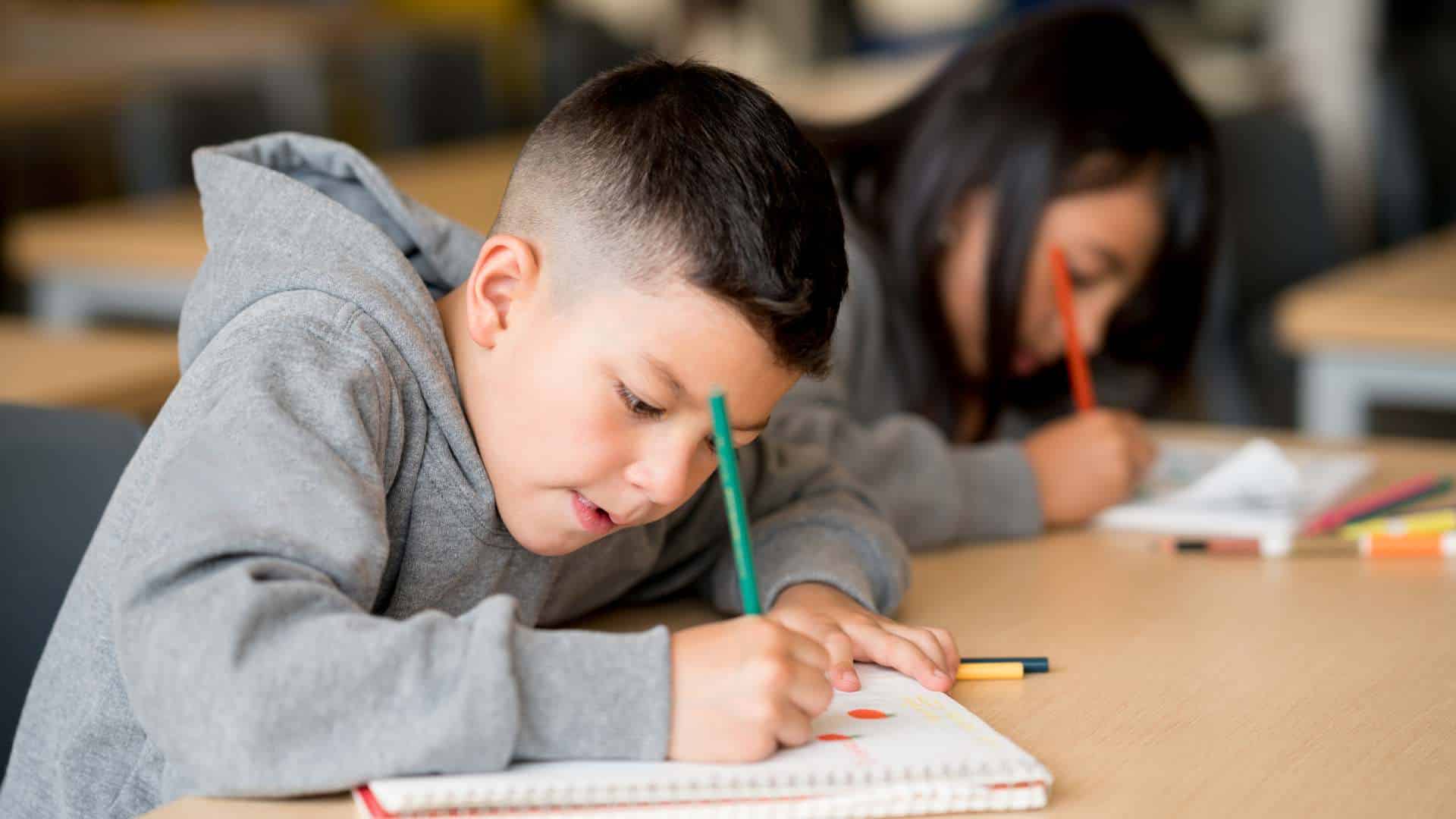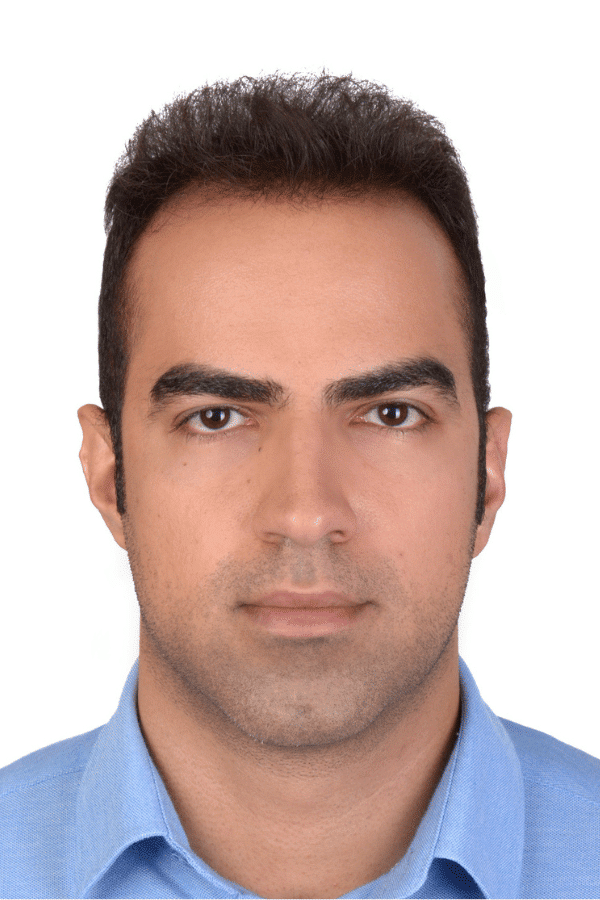The way most school curriculums are designed leave many gifted and talented kids frustrated. We need to rethink how we teach tomorrow’s leaders today.

Students work on a class assignment. (Credit: andresr/Getty Images Signature)
They are words that parents love to hear: your child is gifted. Once that billing is given to a child, in many places around the world, they are welcomed into specialized education streams designed for the best of the best.
But experts in education argue that gifted programs are not doing enough to develop the wide range of skills needed for future leaders to solve problems like climate change. Gifted programs focus on traditional kinds of intelligence — things like reading, writing and arithmetic — and not the skills that big thinkers of the next generation will need.
“We need to have a multidimensional perspective of giftedness,” said Denise Fleith, a professor of psychology at the University of Brasilia in Brazil and current president of the World Council for Gifted and Talented Children. “The problem is some of the abilities, like leadership, are not well-valued in school systems.”
Students in high school today face a world fraught with high-risk crises: conflicts in Gaza and Ukraine, growing numbers of refugees and displaced people, climate change and widespread food insecurity.
These emergencies require leaders with a high level of interpersonal and intrapersonal skills, in addition to traditional scholarly skills. Naturalistic intelligence — an understanding of the natural world — is also important, as it fosters the scientists who will help solve environmental challenges and guide us toward wiser behaviors.
Teaching tomorrow’s leaders
Most gifted programs around the world have not adjusted their entry requirements to reflect the changing needs of the world and broader definitions of intelligence.
In 1983, Howard E. Gardner, a prominent psychologist and professor of education at Harvard University, introduced the concept of different types of intelligence. He identified nine kinds of intelligence:
- logical-mathematical (being good at solving mathematical challenges);
- verbal-linguistic (the ability to use language effectively);
- visual-spatial (being able to visualize and manipulate objects in space);
- interpersonal (the ability to work effectively with others);
- intrapersonal (the capacity for self-understanding);
- existential (sensitivity to deep questions about human existence and purpose),
- and musical, bodily and naturalistic intelligences.
Gifted educational systems around the world continue to prioritize logical-mathematical, verbal-linguistic and spatial intelligence. These programs overlook interpersonal, intrapersonal, naturalistic and existential intelligence — things that are often harder for teachers to appreciate in educational systems that have long valued other skills.
But gifted educational systems have a better chance of developing the full potential of bright minds by offering programs that value different kinds of intelligence, said Shelagh Gallagher, the director of Gifted and Talented Education at the University of North Texas.
“It’s helpful when you think about child development to ensure that everybody can tap into what they have in terms of each of the intelligences,” she said. “We are missing the boat when we ignore some of these intelligences.”
Can we de-standardize education?
Standardized tests are another driver of the hyperfocus on logical-mathematical and verbal-linguistic intelligence, said Joseph Renzulli, a professor of educational psychology at the University of Connecticut and a well-known international psychologist in the field of gifted education. These tests evaluate students’ skills in traditional domains of academic intelligence but cannot measure things like leadership abilities or interpersonal skills.
Renzulli stresses that knowledge in mathematics and science is essential, and will help future generations produce more and better products. “As long as that kind of intelligence and creativity is used to make the world a better place rather than to make more bombs, I believe it has great value,” Renzulli said.
He believes teachers are “brainwashed” into assuming that their job is to put information into the heads of children without considering what students can do with such information.
Researchers often emphasize the importance of developing students’ social and emotional needs in gifted programs. Social and emotional competencies help students to manage their emotions and establish better relationships with others.
Experts in education suggest adding social-emotional and character skills to school programs. This will help gifted students become caring and responsible members of the community and prepare them to be leaders.
Understanding gifted youth
Gifted students may struggle with interpersonal relations and social satisfaction, despite their academic achievements. One study that looked at the social and emotional skills of 143 students, including 51 gifted children, found that gifted students were more unhappy with things like making friends and social interactions. These students also had lower scores in managing their emotions compared to their peers.
“Until many years ago, the focus was on developing academic, intellectual and cognitive abilities,” Fleith said. “Nowadays, we need to look into their social and emotional need. We are not encouraged to think about ourselves and our lives.”
She believes education systems that develop interpersonal and intrapersonal abilities will help students use their giftedness not only for their advantage but also to help other people.
James H. Borland, a professor of education at Columbia University, said he believes that gifted students are not being prepared for the challenges of the world they will face as adults, particularly climate change.
“The solution to the climate problem is not in a multiple-choice exam,” Borland said. “It requires ideas, new ways of thinking and knowledge of the various sciences. We can’t even agree that the obvious problem exists.”
In 2021, UNESCO published a global review that evaluated how educational systems in different countries teach environmental issues. The authors reviewed the education sector plans and national curriculum frameworks from nearly 50 countries and found that most did not refer to climate change.
They found educational systems emphasize cognitive learning, especially the sciences and geography, and undervalue social-emotional and action-oriented learning.
These omissions will have consequences for scholars tasked with solving the problems of tomorrow. As Gallagher sees it, “I think one of the problems is that we are always fixing the plane while we’re flying it.”
Three questions to consider:
-
-
- In what ways do some school programs short-change gifted students?
- Why do many schools focus on standardized exams?
- If you were a school principal or headmaster, how could you improve the way your school educates young people?
-

Mohammad Saeed Gharaati Jahromi is a dedicated doctor with three years of clinical experience in Iran. With an MD and a master’s degree in public health, he is driven by a passion for disease prevention through education. Recognizing the impact of misinformation on health, he is committed to disseminating evidence-based knowledge by way of media platforms.
